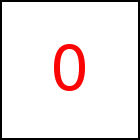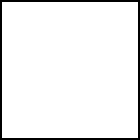scene Library Method
Short Description: Take complete scene to create transition
Signature: x.scene ()
Class: taccglOBJFile Class
The scene method returns an taccgl3DObject Class object
representing a transition displaying the complete scene
stored in the OBJ file.
The result of scene must be passed as second argument to a or actor
in order to attach it to the animation.
Per default the scene is interpreted to be in element coordinates,
i.e. (0,0,0) denotes the top left of the HTML element, (1,0,0) the top right, (0,1,0) the
bottom left and (1,1,0) the bottom right. The initial depth of the HTML is
set identical to the height of the element. Coordintate (0,0,1) of the scene so
refer to the top, left, back point of the HTML element, which is depth pixels behind
the top left of the HTML element.
If the proportions of the HTML element do
not exaclty match the proportions of the scene, the scene is stretched differently for
each axis, so that sphere or a cube no longer appear as a sphere or a cube. Other
ways of adjustment can be selected using modFit.
Examples
var to=taccgl.objFile(); to.read('/objtest/taccgldoc.obj',false); to.mtl.ambientAdjust(0.4); var a=taccgl.a("Layout",to.scene()).modFit(). to(100,500,-2500). rotateMiddle(0.7,0,0.7).dur(3).start(); | RUN |
scene works properly only when and if the OBJ file has been succefully downloaded,
i.e. taccglOBJFile.ready returns "ready".
However, if the file was not downloaded because of an error or because of ddmode
then scene makes an empty transition, that does nothing.
So if in ddmode transitions that in dddmode show 3DObjects
should just be left out, nothing special needs to be programmed.
WebGL™ is a trademark of the Khronos Group Inc.
| 




